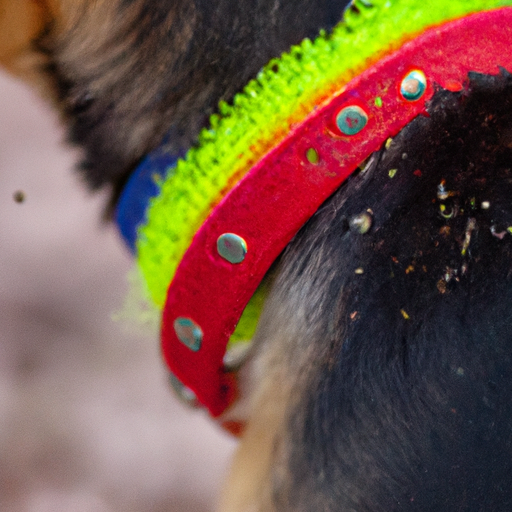As a caregiver, one of your most significant responsibilities is ensuring the wellbeing of your canine companion. You’ve likely come across flea collars in your search for effective flea control methods. So, how do flea collars work on dogs? Let’s delve into the details.
Understanding Flea Collars
Flea collars are a popular choice for many dog owners, but what makes them effective?
Flea collars work by releasing active ingredients that kill or repel fleas. These active ingredients are gradually released over time, usually over several months. The collar’s effectiveness is often determined by the type of active ingredient used.
The Active Ingredients
The efficacy of a flea collar largely depends on its active ingredients. Here are some of the most common ones:
- Imidacloprid: This ingredient attacks the flea’s nervous system, leading to paralysis and death.
- Flumethrin: It’s effective in repelling and killing ticks.
- Deltamethrin: A powerful insecticide, it works to kill both fleas and ticks.
Each of these active ingredients has specific properties that make them effective against fleas.
| Active Ingredient | Action on Fleas |
|---|---|
| Imidacloprid | Kills |
| Flumethrin | Repels/Kills |
| Deltamethrin | Kills |
The Lifespan of Flea Collars
Flea collars are long-lasting, providing protection for your dog for an extended period. Most flea collars last between three to eight months. However, this duration can vary based on factors such as your dog’s level of activity, the number of fleas in the environment, and the specific brand of flea collar.
The Pros and Cons of Using Flea Collars
Like any treatment method, flea collars have their advantages and disadvantages.
Pros:
- Long-lasting protection
- Cost-effective
- Easy to use
Cons:
- Some dogs might have allergic reactions to the active ingredients
- Not as effective in severe infestation cases
- Only provides localized protection
FAQ about Flea Collars
To cap off this insightful journey into the world of flea collars, let’s address some frequently asked questions.
Q: Can flea collars be used on puppies?
A: It depends on the specific product. Some flea collars are safe for puppies, while others are not. Always check the product label.
Q: What if my dog has an allergic reaction to the collar?
A: If your dog shows signs of an allergic reaction, such as excessive scratching, redness, or swelling, remove the collar immediately and consult a veterinarian.
Q: Can I use a flea collar along with other flea treatments?
A: Some flea collars can be used in conjunction with other treatments, but it’s best to consult your vet first.
Taking care of a furry friend comes with its challenges, but with the right information, you can make informed decisions about their health. Understanding how flea collars work is a step in the right direction.



